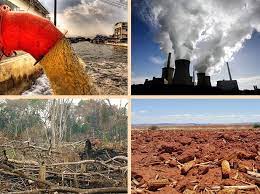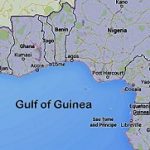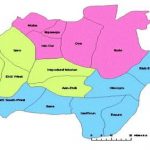Standards Organisation of Nigeria (SON) and the National Environmental Standards and Regulations Enforcement Agency (NESREA) have resolved to strengthen collaboration towards more effective regulation of electronic waste management in the Country.
This resolution was made during a courtesy visit of the Management of NESREA led by the Director General, Dr. Aliu Jauro to his SON counterpart, Farouk Salim and the Management in Abuja recently.
Dr. Jauro acknowledged the existing collaboration between the two organisations since NESREA came into existence, especially in the areas of standards development, adoption and review which has contributed immensely to his agency’s regulatory efforts in environmental standards.
He however expressed concern about the negative effects of Electronic Waste (e-waste) in Nigeria following the influx of obsolete and near end of life electronics into the country, which requires closer attention.
The NESREA Chief Executive referred to the two agencies’ active participation in an inter-ministerial consultative committee set up by the Federal Government in 2009 to strategize on curbing the influx of electronic waste and near end of life electrical/electronic equipment and products which safe disposal poses serious challenge to the Nation in view of the hazardous materials contained in them.
Dr. Jauro also expressed concern about recyclers of Electronic waste materials across the country whose activities are carried out in unsound manner, thus impacting the environment and human health negatively.
The NESREA boss therefore sought SON’s support to enhance the effective regulation of e-waste to mitigate the negative effects in Nigeria by making the lists of all Electrical/Electronic Equipment (EEE) and products certified under the Mandatory Conformity Assessment Programme (MANCAP) for locally manufactured products and those imported under the offshore conformity assessment programmes (SONCAP) available to NESREA.
“This will provide NESREA with the inventory of importers of Electrical Electronic Equipment (EEE) to enable the Agency follow-up and ensure that the goods are appropriately recycled at the end of the life cycle and disposed of properly and in environmentally sound manner.” Dr. Jauro said.
Responding, Salim identified e-waste as a threat to health and the environment when not handled properly, while decrying the general ignorance of the dangers by the larger population as the recyclers prioritize their financial gains over public good and operate freely due to lack of consequences for their negative activities.
According to the SON Chief Executive, “the country has become a dumping ground for so many toxic materials thus exposing the citizens to diseases like cancer without knowing the source.” He therefore, acceded to a joint Committee to workout appropriate measures to integrate areas of common interests between the two organisations in order to curb the consequences of the prevalence of e-waste in Nigeria.









Comment here